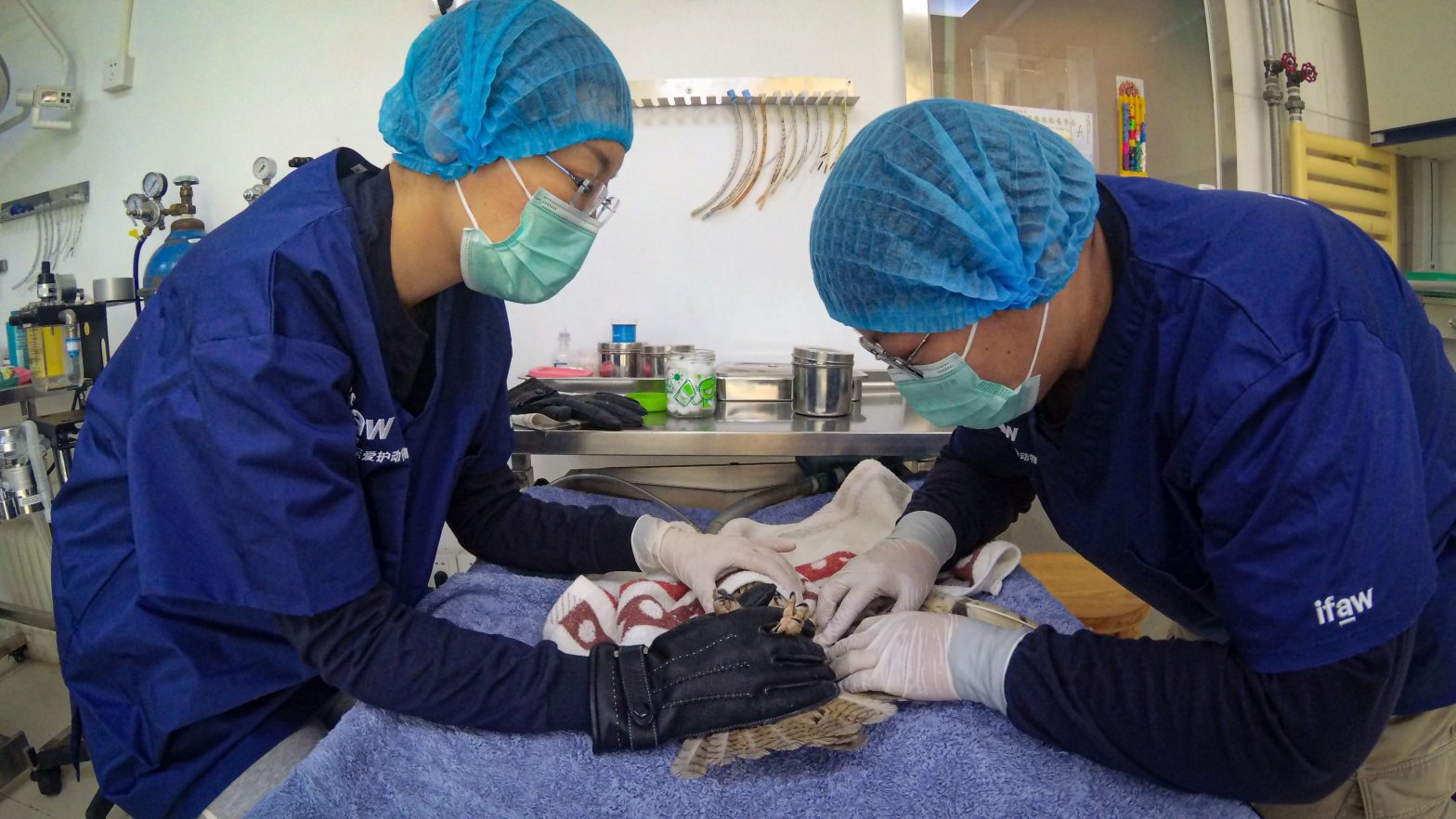Veterinary internal medicine is a vast area in animal healthcare, representing a significant branch of veterinary medicine. This field covers various diseases and disorders affecting the internal organs of animals, including but not limited to the gastrointestinal system, respiratory system, urogenital system, endocrine organs, and blood and lymphatic systems. So, what treatments are involved in veterinary internal medicine? Let’s venture into this fascinating area of animal healthcare.
The Role of Veterinary Internal Medicine
- Specialized Expertise: Veterinary internal medicine involves extensive training and advanced knowledge, allowing veterinarians to specialize in diagnosing and treating complex animal medical conditions.
- Diagnosis of Challenging Cases: Internal medicine specialists are skilled in diagnosing complex and challenging cases that may not have obvious symptoms or require in-depth investigation.
- Management of Chronic Illness: Internal medicine veterinarians excel in managing chronic diseases, such as diabetes, kidney disease, heart disease, and autoimmune disorders. They develop comprehensive treatment plans to optimize the pet’s health and well-being.
- Treatment of Acute Health Conditions: Internal medicine specialists can promptly address acute health conditions that require urgent medical attention, such as respiratory distress, gastrointestinal emergencies, and infections.
- Diagnostic Imaging: Utilizing advanced diagnostic tools like radiography, ultrasound, and endoscopy, internal medicine veterinarians can visualize internal organs and identify abnormalities for accurate diagnosis.
- Laboratory Analysis: Veterinary internal medicine relies on extensive laboratory testing to assess blood, urine, and other samples, aiding in the diagnosis and monitoring of various diseases.
- Cancer Diagnosis and Management: Internal medicine specialists are critical in diagnosing and treating pet cancer. They determine the extent of the disease and develop comprehensive treatment plans, which may involve surgery, chemotherapy, or radiation therapy.
- Cardiovascular Health: Internal medicine veterinarians excel in diagnosing and managing heart conditions in pets, such as heart murmurs, congestive heart failure, and arrhythmias.
- Respiratory Conditions: They diagnose and treat respiratory issues like pneumonia, asthma, bronchitis, and other pulmonary disorders.
- Gastrointestinal Disorders: Internal medicine specialists address various gastrointestinal conditions, such as inflammatory bowel disease, pancreatitis, and liver disease.
- Endocrine Disorders: They manage hormonal imbalances and endocrine disorders, such as thyroid disorders, Cushing’s disease, and diabetes.
- Infectious Disease Management: Internal medicine veterinarians diagnose and treat infectious diseases, ensuring appropriate measures are taken to prevent the spread of contagious illnesses.
- Autoimmune Disease Management: They provide specialized care for pets with autoimmune disorders, helping to manage symptoms and improve quality of life.
- Nutritional Management: Internal medicine veterinarians can design specialized diets for pets with specific health conditions, supporting their overall well-being and treatment plan.
- Multidisciplinary Approach: Internal medicine specialists collaborate with other veterinary specialists, such as surgeons, oncologists, and radiologists, to provide comprehensive care for pets with complex health issues.
- Critical Care: They excel in critical care for seriously ill pets, stabilizing their condition and supporting their recovery.
- Pain Management: Internal medicine specialists prioritize pain management for pets with chronic conditions, ensuring their comfort and well-being.
- Client Education: They are essential in educating pet owners about their pets’ medical conditions, treatment options, and long-term care needs.
- Research and Advancements: Veterinary internal medicine continually evolves through research and medical advancements, ensuring pets receive the best possible care based on the latest knowledge and techniques.
- Compassionate Care: Above all, internal medicine veterinarians provide compassionate care to pets and their owners, aiming to improve their patient’s quality of life and health.
Diverse Treatments in Veterinary Internal Medicine
1. Therapeutic Drug Use
Veterinary internal medicine utilizes various therapeutic drugs to manage various animal medical conditions.
- Immunotherapy involves using immune-modulating drugs to treat autoimmune diseases, where the immune system attacks the body’s tissues. These drugs help regulate the immune response and reduce inflammation.
- Chemotherapy: Veterinary oncologists employ chemotherapy drugs to treat cancer in pets. These medications target and kill cancer cells or slow their growth, improving the pet’s quality of life and potentially extending their lifespan.
- Endocrine Disorders: Internal medicine specialists prescribe medications to manage endocrine disorders like diabetes, Addison’s disease, Cushing’s disease, and thyroid imbalances.
- Antimicrobial Therapy: Antibiotics and other antimicrobial drugs are used to treat bacterial, fungal, and parasitic infections, helping to eradicate harmful microorganisms and promote healing.
2. Diagnostic Services
Veterinary internal medicine relies on advanced diagnostic tools and procedures to accurately diagnose internal diseases.
- Endoscopy: Endoscopic procedures involve inserting a flexible tube with a camera and light source into the body to visualize internal organs and collect tissue samples for examination. It is beneficial for diagnosing gastrointestinal issues, respiratory conditions and collecting biopsy samples.
- Ultrasound: Ultrasonography allows non-invasive imaging of internal organs, diagnosing various conditions, including heart disease, liver and kidney disorders, and pregnancy.
- Computed Tomography (CT): CT scans provide detailed cross-sectional images of the body, enabling precise visualization of organs and structures, handy for diagnosing conditions in the head, neck, chest, and abdomen.
3. Pain Management
Pain management is a crucial aspect of veterinary internal medicine, ensuring that pets with acute or chronic pain receive appropriate care and relief.
- Pain Medications: Internal medicine specialists may prescribe analgesic drugs to manage pain, ensuring the pet’s comfort during treatment and recovery.
- Alternative Therapies: In some cases, complementary and alternative therapies like acupuncture or laser therapy may alleviate pain and promote healing.
4. Nutritional Management
Internal medicine veterinarians may design specialized diets to treat specific pets’ health conditions.
- Therapeutic Diets: Prescription diets are formulated to support pets with conditions such as kidney disease, urinary issues, gastrointestinal disorders, and food allergies.
5. Management of Chronic Conditions
Veterinary internal medicine excels in managing chronic diseases that require ongoing treatment and monitoring.
- Diabetes Management: Internal medicine specialists provide comprehensive care for pets with diabetes, including insulin therapy, dietary management, and monitoring blood glucose levels.
- Kidney Disease Management: Treatment plans may include medication, special diets, and fluid therapy to manage kidney disease and support kidney function.
- Heart Disease Management: Internal medicine veterinarians develop treatment strategies to manage heart conditions and improve heart function, including medication and lifestyle changes.
6. Critical Care
In critical care settings, internal medicine specialists provide advanced medical support to seriously ill pets, stabilizing their condition and aiding their recovery.
- Intravenous Fluid Therapy: Fluid therapy helps critically ill pets maintain hydration and electrolyte balance.
- Oxygen Support: Oxygen therapy is provided to pets with respiratory distress to improve their breathing and oxygenation.
7. Collaboration With Other Specialties
Internal medicine specialists work closely with other veterinary specialists, including surgeons, oncologists, radiologists, and cardiologists, to develop comprehensive treatment plans for complex cases.
- Multidisciplinary Approach: This collaborative approach ensures that pets receive the best possible care, drawing on the expertise of different specialties.
- Coming to Veterinary surgery involves performing various surgical operations to treat or improve the health conditions of animals. In some cases, cat surgery or surgery for any other pet type becomes imperative when a pet has been in an accident or has ingested something it shouldn’t have.
8. Lifestyle Modifications
- Animal internal medicine experts may recommend lifestyle changes to improve pets’ health and well-being.
- Weight Management: Weight loss or gain programs address obesity or underweight issues, promoting optimal body condition and overall health.
- Exercise Regimens: Appropriate exercise plans can help pets with certain conditions, such as musculoskeletal issues, maintain muscle tone and joint health.
9. Monitoring and Follow-Up
After diagnosis and treatment, internal medicine specialists closely monitor the pet’s progress and adjust treatment plans for optimal outcomes.
- Regular Check-Ups: Follow-up visits allow veterinarians to track the pet’s response to treatment and modify the treatment plan.
- Reevaluation of Medications: Medications may be adjusted based on the pet’s response, ensuring the most effective and safe dosages are administered.
10. Client Education
- Internal medicine specialists are vital in educating pet owners about their condition, treatment options, and long-term care needs.
- They help pet owners understand the importance of compliance with treatment plans and the significance of regular veterinary check-ups to maintain their pet’s health.
Pet dental care is another crucial aspect of internal veterinary healthcare. One should never overlook the importance of oral health for our four-legged friends. Just like a professional cat dentist who regularly checks on our cat’s oral condition, regular dental check-ups and surgeries are necessary for all pets.
Conclusion
Veterinary internal medicine is a pivotal area that contributes significantly to animal healthcare. Whether using diagnostic tools, employing drug therapies, or implementing surgeries, the realm of treatments involved in this field is immensely vast. This multifaceted approach gives our pets the best care possible, promising them a healthier and happier life. Veterinary medicine continues to advance and evolve, truly embodying the adage that every life, no matter how small, should be cherished and cared for.


